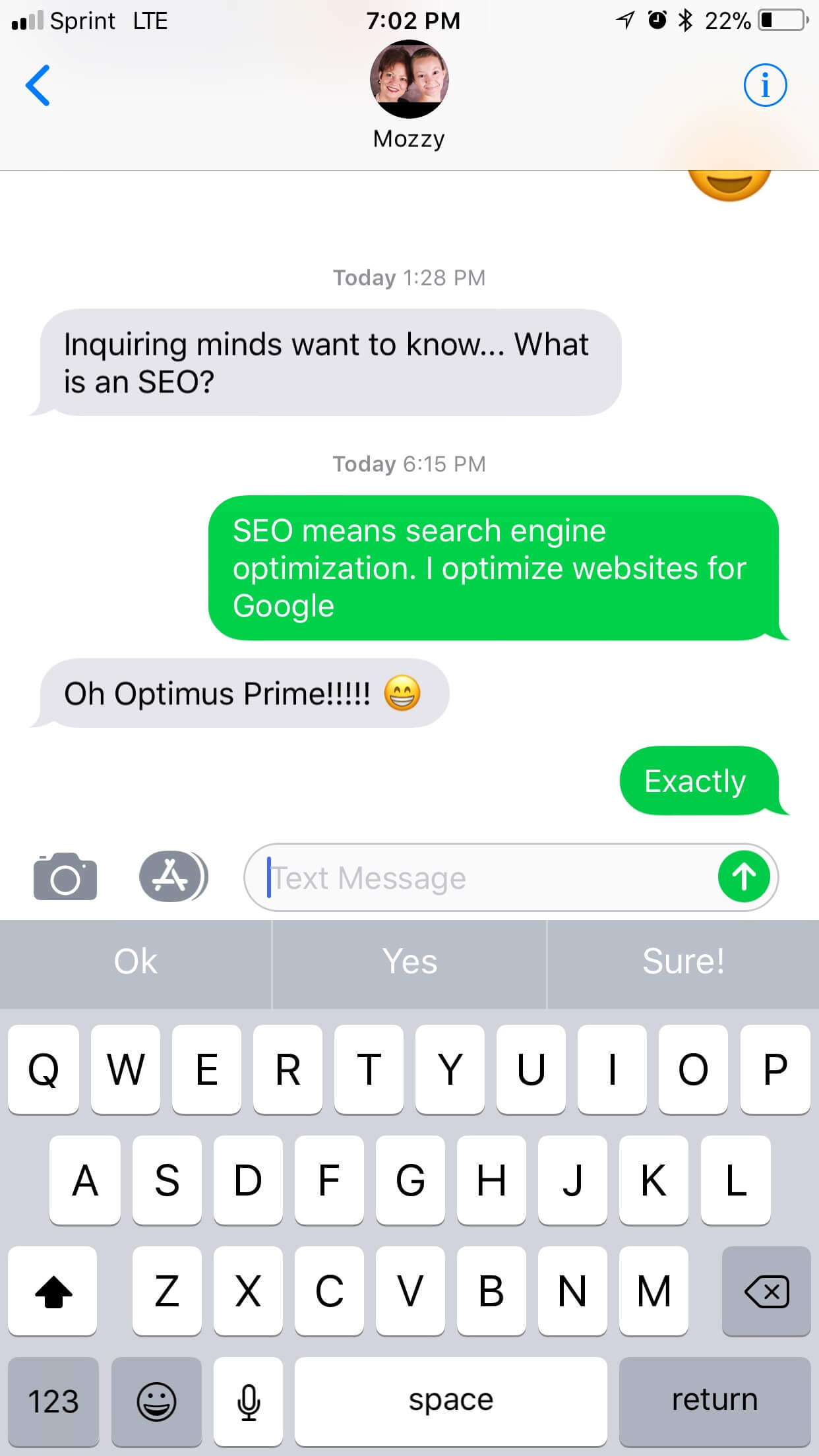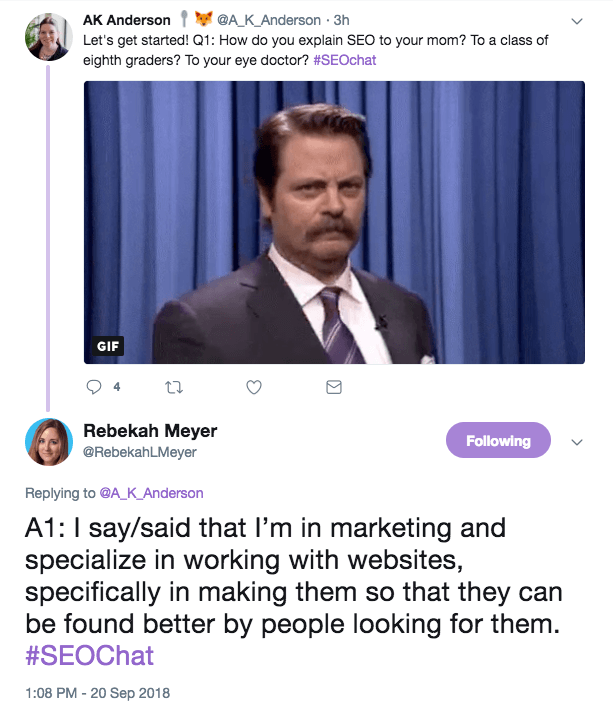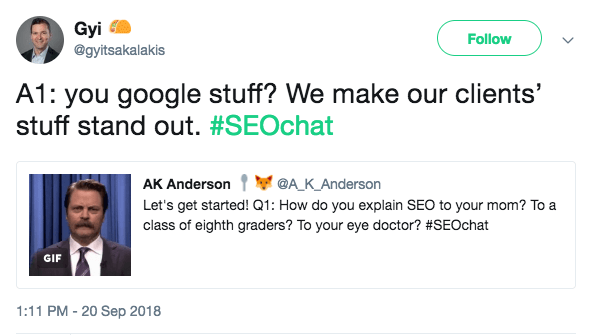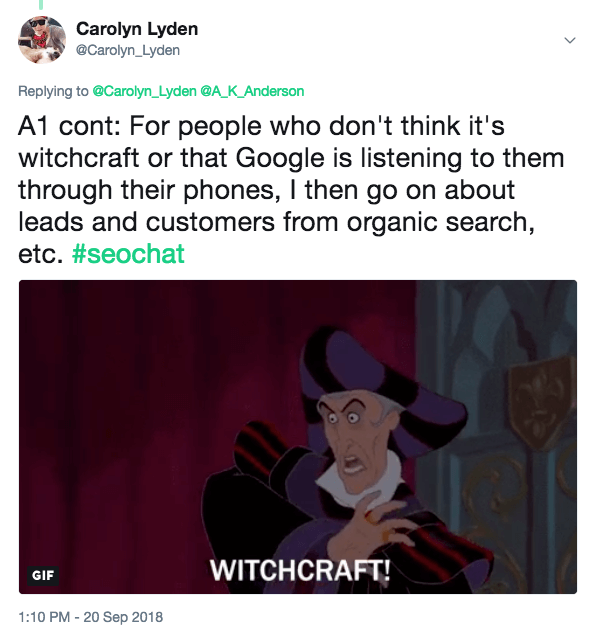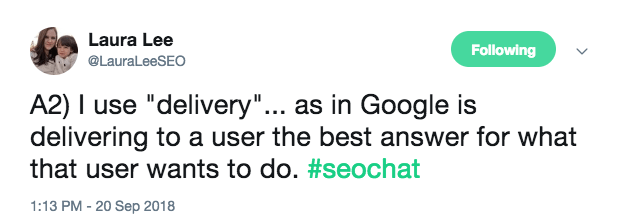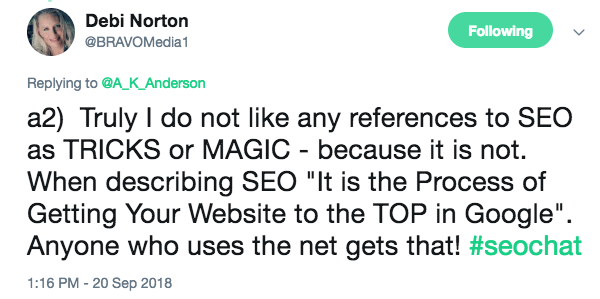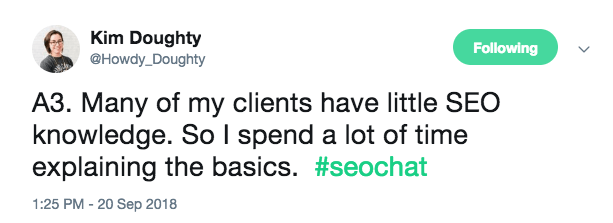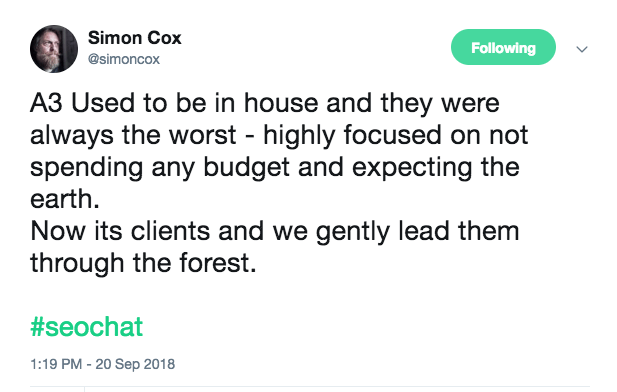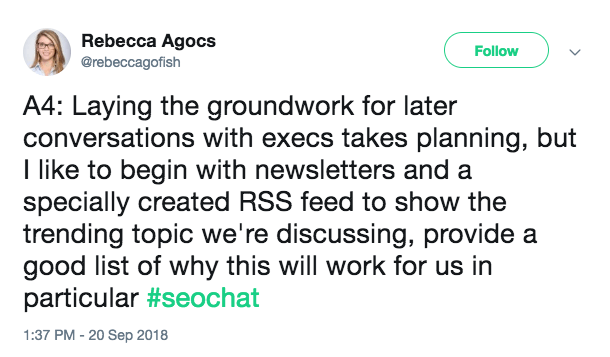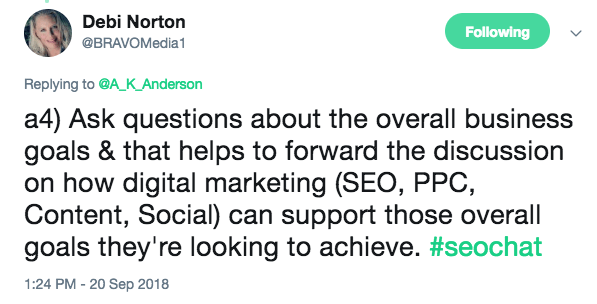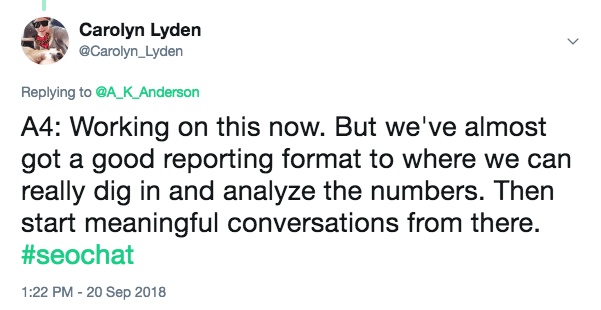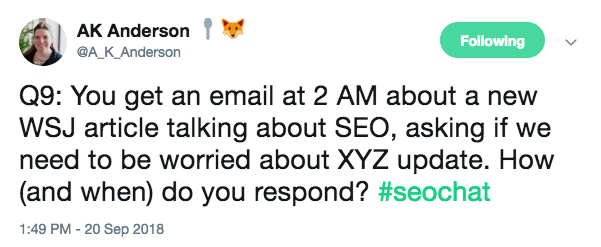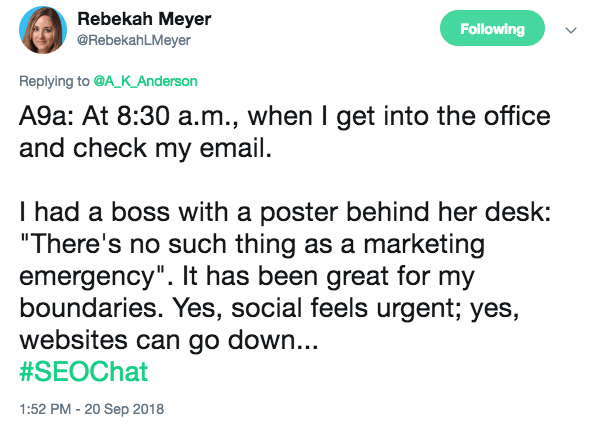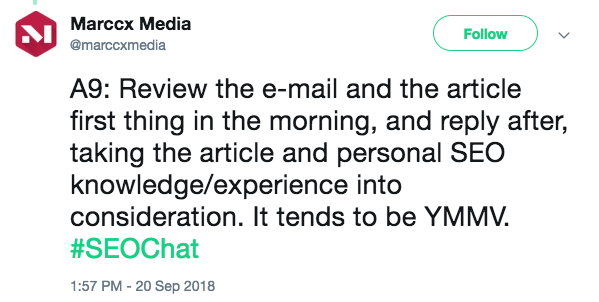How do you explain your job to your grandmother, your dentist, or to a class of 8th graders on career day? That was the basic idea behind this past week’s #SEOChat a weekly tweetchat hosted by Alicia K. Anderson. Here’s the list of the SEOs from all over the world who gathered on Twitter to discuss how we address our jobs and our work to people who don’t know all the details but want the results we can provide.
- @A_K_Anderson
- @BRAVOMedia1
- @RebekahLMeyer
- @gyitsakalakis
- @Carolyn_Lyden
- @LauraLeeSEO
- @Howdy_Doughty
- @simoncox
- @rebeccagofish
- @marccxmedia
Executive education and relationship building are crucial to any marketer’s success (for agency, freelance, and in-house). While the person funding your budget doesn’t necessarily care about every detail of your work, he or she needs to know you’re getting the job done (once that person realizes what your job actually is). Here are the best ways to communicate your value to executive-level
1. Don’t Get Mired Down in Details
When asked how most SEOs describe their jobs to people who really have no idea, many people kept it basic and neutral saying that most people don’t understand or sometimes don’t care about the details:
If the person asking understands the basics, some people continue on to show how it’s important to work on SEO factors to get to potential conversions:
The basic idea is to find a way to describe what you do that’s easy to understand, doesn’t make people feel dumb (because that automatically puts some people on the defensive), and describes your value to their company and bottom line.
2. Use Easy Analogies
One of the best ways to help people understand what you do for their marketing and revenue is to use analogies that are easily relatable. Some people likened it to a delivery service–of answers:
Some wanted to ensure that the hard work behind the good rankings and conversions was recognized for what it was–not just a quick magic trick.
Find something that strikes a chord with your executive audience and use that as a bridge to the gap between what they need from you and what you can do for them. By speaking their language, they’ll be on your side faster and willing to work with you as challenges arise.
3. Know Your Audience
There’s nothing more annoying than feeling like you’re being condescended to. Ensure that you know your audience’s knowledge level so you’re speaking to that. If your pitch or reporting insights are too technical, your executive audience may feel frustrated or even tune you out. However, it can go the other way too. If you’re talking points are too low-level, your crowd might find you condescending. Know their level and speak to it.
4. Engage Your Client/Executive Continually
As with any business relationship, constant communication is often key to ensuring all parties remain satisfied and happy. For SEOs this means keeping on top of the latest news in tech and marketing and passing that info on to people you know who might be stakeholders.
Is there a big change in Google My Business? Your franchise owner client will definitely want to know about that. Has Facebook changed its algorithm again? A company that relies on social for customer feedback and engagement will need to know about that shift.
Being the expert who cares about your client’s business is an invaluable relationship builder. Here are some of the ways #SEOChatters said they keep the conversations going with the executives they serve:
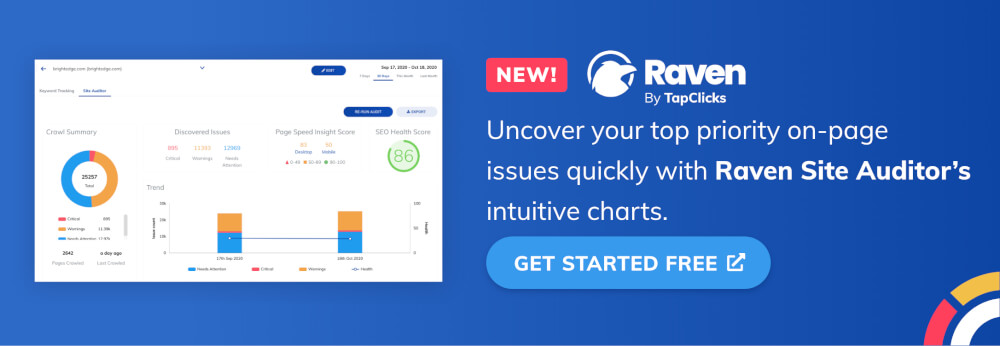


5. Set Expectations
Part of a good communication plan and education plan is setting expectations. Not only does this give the exec a notion of what’s worth freaking out about and what’s not, but it can also avoid the “You provided X, but I expected Y scenario.”
When your executive is confident that you’ve got it covered, there hopefully won’t be a freak-out email at 2 am. Just a calm, “Did you see this?” at a reasonable hour. 🙂
Participants in #SEOChat span all levels of marketing, multiple divisions, varied backgrounds, and more, but their knowledge and tips ring true. As with any relationship, it’s crucial to work with your executive team toward mutually beneficial targets–whether you’re an agency working with a client, a freelancer helping a business reach it’s goals, or in-house on a company’s marketing team.
These tips can help you get started on the right foot.
—

Previous to joining CallRail, Carolyn specialized in franchise, local, small business SEO. In her free time, she loves to participate in marketing- and SEO-related Twitter chats.
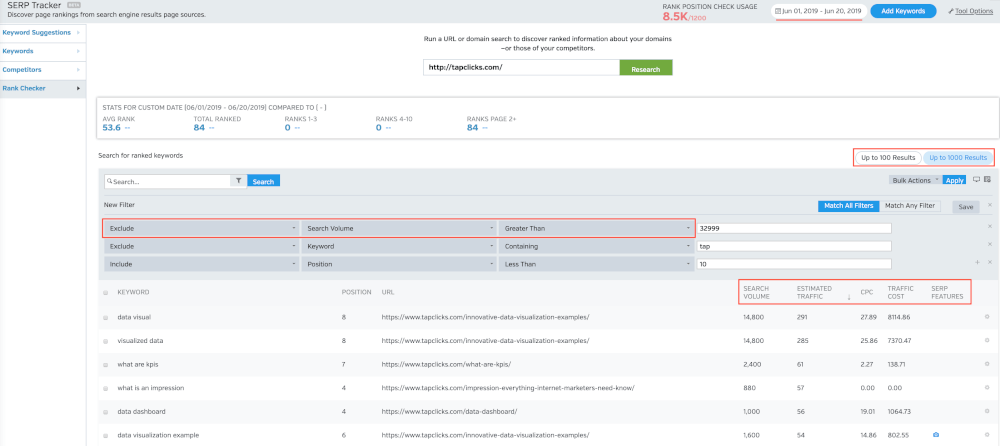
Give your keyword research a massive boost by immediately getting actionable intelligence on the competition.




